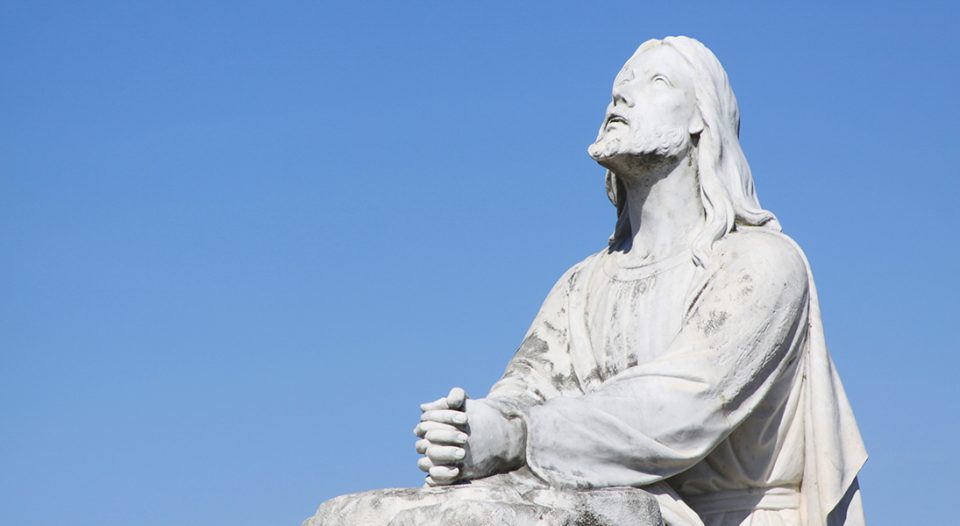Lectionary for Aug 13, 2023
11th Sunday after Pentecost
1 Kings 19:9-18; Psalm 85:8-13;
Romans 10:5-15; Matthew 14:22-33
If you’ve flown in the past several decades, you’ve heard the flight attendants’ safety announcement that, if there is a sudden loss of cabin pressure, you should put on your own oxygen mask first and then help those around you. It’s good advice. You can’t help others if you can’t breathe.
While we are instructed to put on our mask first, we also need to look out for others who need help to make sure that they can breathe and survive as well. The readings appointed for this week tell of two fatigued masters who first got what they needed and then were able to help their disciples.
We start with Elijah. After Jezebel and Ahab threatened him (again), Elijah fled to the wilderness, seeking to end his life. God sent messengers with snacks and instructions to sleep so that Elijah could go on to the ministry to which God had called him. There is a popular meme going around that references this episode, saying that sometimes all a fatigued, burned-out Christian needs is a snack and a nap. But notice that Elijah’s outlook didn’t change after his rest. He came to a cave and told God that everything was hopeless and people were trying to kill him.
In the wilderness Elijah witnessed a wind, earthquake and fire and heard a crushed, quiet voice. He wrapped his outer garment around his head to prevent from seeing God and gave the same complaint. You see, snacks, naps and miracles weren’t what Elijah needed. He was still tired and burned-out. He was ready to be done with ministry. He was certainly ready to stop being a target of assassination.
Then God gave Elijah his oxygen mask: Elijah should anoint three men—Hazael, Jehu and Elisha. They would take over the fight so Elijah could rest and take a breather. Interestingly, Elijah didn’t anoint any of the three. He simply threw his cloak over Elisha, without stopping to talk until the young man ran after him. After a brief hesitation, Elisha spent time learning from his recalcitrant master about the ways of a prophet. Elisha, in turn, eventually caused another prophet to anoint Jehu (2 Kings 9:1-10) and went to announce to Hazael that he would become king over Aram, and perhaps anointed him (2 Kings 8:7-15).
Instead of fulfilling God’s three commandments, all Elijah could manage was to literally place a prophet’s mantle on his successor. Elijah was exhausted, and the promise of a respite was the only thing that allowed him to carry on as long as he did. After that, Elijah was a messenger—and cause—of death until he was eventually carried away (1 Kings 21:17-19, 27-29; 2 Kings 1:1-16; 2 Kings 2:1-14).
Jesus sought healing rest for himself, and then he provided safety and calm for his disciples.
In the Gospel reading, Jesus was tired too. Word had reached him earlier in the day that his relative, John the Baptizer, had been executed. He sought to be alone, but crowds followed him. Jesus had compassion on them, and fed and healed them. But after all this, he was profoundly in need of some alone time. Jesus compelled (the Greek verb carries a forceful connotation) his disciples into a boat and ordered them to go ahead of him to the opposite side of the sea.
Finally, after terrible news and an exhausting day, Jesus was alone. God gave Jesus his oxygen mask: time to pray to his Father, alone.
Yet, like Elisha, Jesus’ disciples immediately needed help to become like their master. Jesus had seen the storm blow up and, perhaps still somewhat fatigued, decided to take a shortcut across the lake, rather than around it. When the disciples saw him, they were understandably terrified. Peter, bravely and wisely, decided to test the vision to see whether it was the Lord of life, a ghost or an agent of the dead. If it was Jesus, Peter would be kept safe from the watery abyss. If, however, it was a ghost, Peter would begin to sink and would quickly scrabble back into the boat. Peter began to walk on water, and Jesus’ identity was confirmed.
As we know, that wasn’t the end of the story. Peter took his eyes off Jesus and looked at the wind, becoming frightened. He began to sink and called out to Jesus for salvation. Jesus, of course, brought Peter up out of the swirling water and planted him safely in the boat, calming the storm in the process. Jesus sought healing rest for himself, and then he provided safety and calm for his disciples.
This week the two stories of exhausted masters helping perplexed students highlight the wisdom of self-care. Elijah didn’t just need a snack and a nap. He didn’t need miracles. He needed helping partners and some time off. Jesus had all the food and miracles in the world at his fingertips. What he really needed was some time alone to pray. Only after they recuperated from their fatigue were they able to help their disciples grow in faith and power. What do you need from God so that you can help the next generation of faith?





